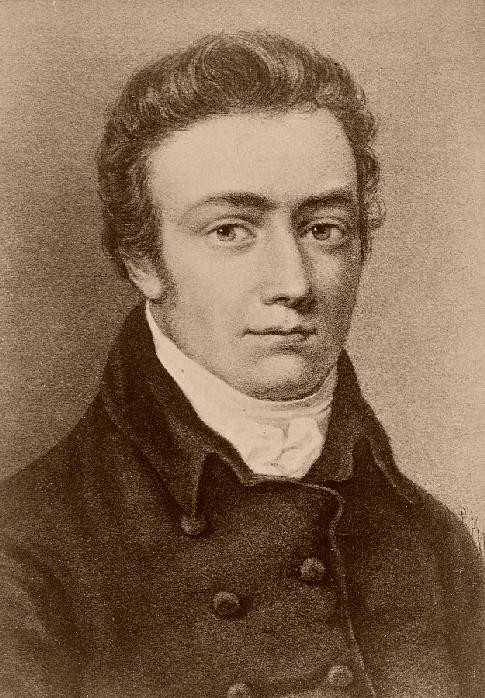“Her face, oh call it fair, not pale!”
Part II
Bartlett's Familiar Quotations, 10th ed. (1919), Christabel
Samuel Taylor Coleridge was an English poet, literary critic, philosopher and theologian who, with his friend William Wordsworth, was a founder of the Romantic Movement in England and a member of the Lake Poets. He also shared volumes and collaborated with Charles Lamb, Robert Southey, and Charles Lloyd. He wrote the poems The Rime of the Ancient Mariner and Kubla Khan, as well as the major prose work Biographia Literaria. His critical work, especially on William Shakespeare, was highly influential, and he helped introduce German idealist philosophy to English-speaking culture. Coleridge coined many familiar words and phrases, including suspension of disbelief. He had a major influence on Ralph Waldo Emerson and American transcendentalism.
Throughout his adult life Coleridge had crippling bouts of anxiety and depression; it has been speculated that he had bipolar disorder, which had not been defined during his lifetime. He was physically unhealthy, which may have stemmed from a bout of rheumatic fever and other childhood illnesses. He was treated for these conditions with laudanum, which fostered a lifelong opium addiction.
Wikipedia

“Her face, oh call it fair, not pale!”
Part II
Bartlett's Familiar Quotations, 10th ed. (1919), Christabel
“A lady richly clad as she,
Beautiful exceedingly.”
Part I
Bartlett's Familiar Quotations, 10th ed. (1919), Christabel
“Experience informs us that the first defence of weak minds is to recriminate.”
Source: Biographia Literaria (1817), Ch. II
Notebooks, September/early October 1802
Notebooks
France, An Ode. v
Bartlett's Familiar Quotations, 10th ed. (1919)
The Death of Wallenstein, Act v, scene 1
Bartlett's Familiar Quotations, 10th ed. (1919)
“The book of Job is pure Arab poetry of the highest and most antique cast.”
9 May 1830
Table Talk (1821–1834)
Reported in Josiah Hotchkiss Gilbert, Dictionary of Burning Words of Brilliant Writers (1895), p. 235, and various other sources beginning no earlier than 1880; actually an elaboration and modification of a quote by D.W. Clark, The Mount of Blessing (1854), p. 56: "It shall be my wealth in poverty, my joy in sorrow, and its promised rewards shall cheer me in all trials, and sustain me in all sufferings".
Misattributed
“A mother is a mother still,
The holiest thing alive.”
The Three Graves
Bartlett's Familiar Quotations, 10th ed. (1919)
Letter to Henry Crabb Robinson (12 March 1811)
Letters
“Tranquillity! thou better name
Than all the family of Fame.”
Ode to Tranquillity
Bartlett's Familiar Quotations, 10th ed. (1919)
Kubla Khan (1797 or 1798)
Letter to William Sotheby (10 September 1802)
Letters
Letter to Robert Southey (6 July 1794)
Letters
“Nought cared this Body for wind or weather
When Youth and I lived in't together.”
" Youth and Age http://etext.lib.virginia.edu/stc/Coleridge/poems/Youth_and_Age.html", st. 1 (1823–1832)
To a Lady, Offended by a Sportive Observation
Bartlett's Familiar Quotations, 10th ed. (1919)
17 March 1833
Table Talk (1821–1834)
Aids to Reflection (1873), Aphorism 1
Source: Biographia Literaria (1817), Ch. XVII
24 June 1827
Table Talk (1821–1834)
Source: Biographia Literaria (1817), Ch. I
“Earth with her thousand voices praises God.”
Hymn in the Vale of Chamouni.
Bartlett's Familiar Quotations, 10th ed. (1919)
Letter to James Gillman (9 October 1825)
Letters
“Risest from forth thy silent sea of pines.”
"Hymn in the Vale of Chamouni" (1802)
“Blest hour! it was a luxury — to be!”
" Reflections on Having Left a Place of Retirement http://etext.lib.virginia.edu/stc/Coleridge/poems/Reflections_Retirement.html", l. 43 (1795)
Aids to Reflection, 1839 https://archive.org/stream/aidstoreflection06cole#page/142/mode/2up, p. 142.
29 June 1833
Table Talk (1821–1834)
Letter to James Gillman (9 October 1825)
Letters
" Love http://etext.lib.virginia.edu/stc/Coleridge/poems/Love.html", st. 1 (1799)
“The most general definition of beauty … Multeity in Unity.”
On the Principles of Genial Criticism (1814)
“The last speech, the motive-hunting of a motiveless malignity — how awful!”
On Iago soliloquy in Othello, in "Notes on Shakespeare" (c. 1812)
Source: Biographia Literaria (1817), Ch. XIV
Conclusion to Part II
Bartlett's Familiar Quotations, 10th ed. (1919), Christabel
“Painting is the intermediate somewhat between a thought and a thing.”
30 August 1827
Table Talk (1821–1834)
“Joy rises in me, like a summer's morn.”
A Christmas Carol, viii
Bartlett's Familiar Quotations, 10th ed. (1919)
Kubla Khan (1797 or 1798)
“Never, believe me,
Appear the Immortals,
Never alone.”
The Visit of the Gods, (Imitated from Schiller)
Bartlett's Familiar Quotations, 10th ed. (1919)
that though Reason is feasted, Imagination is starved; whilst Reason is luxuriating in its proper Paradise, Imagination is wearily travelling on a dreary desert.
Letter to his brother (1791)
Letters
'Aids to Reflection (1873), Aphorism 26